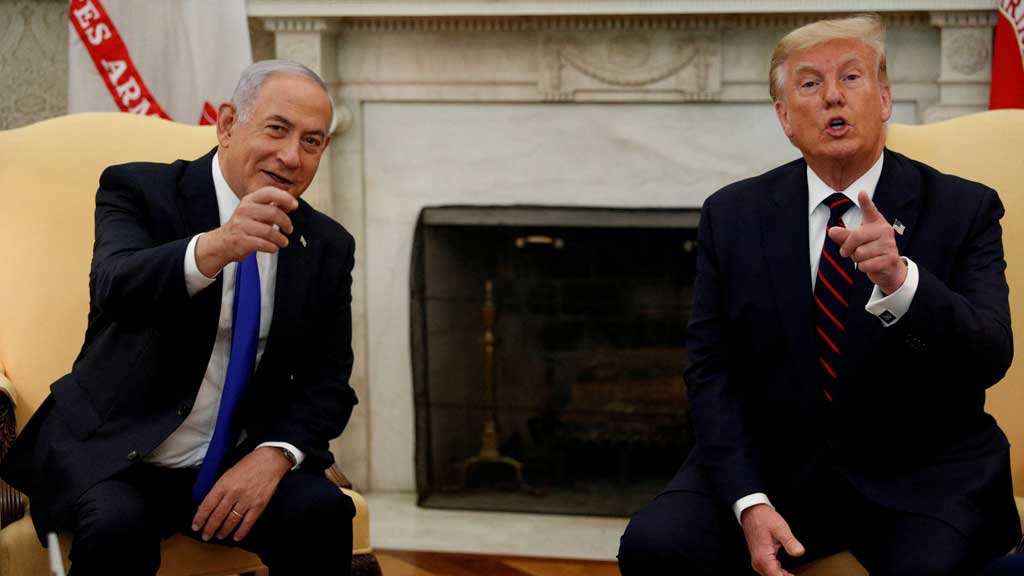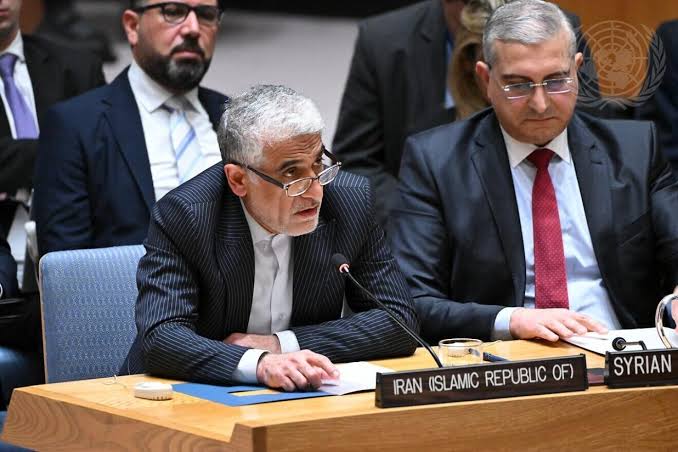When Israeli Prime Minister Benjamin Netanyahu meets with U.S. President Donald Trump on Tuesday, he is anticipated to seek to improve the sometimes strained relationship with the Biden administration. The discussions will focus on the future of the Gaza ceasefire and strategies to address Iran’s influence.
As the first foreign leader to meet Trump since his inauguration on January 20, Netanyahu may face pressure from the pro-Israel president, whose objectives in the Middle East may not always align with those of the Israeli leader.
Their meeting coincides with the resumption of indirect negotiations between Israel and Hamas regarding the next phase of the ceasefire agreement and the release of hostages. A joint press conference is expected to follow their discussions.
Ahead of the meeting, Trump informed reporters on Sunday that talks with Israel and other nations concerning the Middle East were “progressing,” though he did not provide specific details.
The region is at a pivotal moment, with the Gaza ceasefire remaining fragile, an uneasy ceasefire with Hezbollah in Lebanon potentially nearing its end, and ongoing concerns about Iran’s nuclear ambitions despite its current vulnerabilities.
During his first term, Trump facilitated several significant achievements for Netanyahu, including the relocation of the U.S. embassy to Jerusalem and the signing of the Abraham Accords, which normalized relations between Israel and various Arab nations.
Trump continues to be a strong advocate for Israel, claiming credit for brokering the Gaza ceasefire agreement with Hamas even before his return to office, while expressing a desire to conclude conflicts in the Middle East.
He has also indicated a hope to revive efforts aimed at achieving historic normalization of relations between Israel and Saudi Arabia.
The situation has led to uncertainty regarding the extent of support Trump will extend to Netanyahu. The Israeli Prime Minister is under pressure from far-right coalition members who threaten to destabilize his government unless he resumes military action in Gaza to honor his commitment to eliminate Iran-backed Hamas. A prolonged conflict could hinder Trump’s efforts to engage the Saudis in negotiations.
Nevertheless, Netanyahu is likely to receive a more favorable response from Trump compared to his interactions with former President Joe Biden.
While Biden continued to provide military assistance to Israel following the Hamas attack on October 7, 2023, which triggered the Israeli offensive in Gaza, their relationship experienced tensions due to the significant Palestinian civilian casualties and Netanyahu’s resistance to certain U.S. requests.
NO ASSURANCES
Trump’s Middle East envoy, Steve Witkoff, was instrumental in assisting the Biden administration in achieving the long-desired Gaza agreement prior to the transfer of power on January 20 and is anticipated to play a significant role in the upcoming discussions. The initial phase resulted in Hamas releasing 18 hostages, while Israel freed hundreds of imprisoned Palestinians.
On Monday, Trump informed reporters that there were no guarantees regarding the sustainability of the ceasefire, although Witkoff expressed optimism, stating, “We’re certainly hopeful.”
Trump and Netanyahu have expressed their desire to incorporate Saudi Arabia into new regional frameworks that build upon the Abraham Accords, a move that could establish a defense against Iran.
However, Netanyahu’s firm opposition to any initiatives aimed at establishing a Palestinian state, a position increasingly supported by many Israelis following the Gaza conflict, may hinder a potential agreement with Saudi Arabia, which has previously demanded at least a commitment to a pathway for Palestinian independence.
Since assuming office, Trump has sparked controversy by proposing the relocation of Gazans to neighboring nations like Egypt and Jordan, aligning with the views of Israel’s far-right factions and contradicting Biden’s stance against the mass displacement of Palestinians.
The governments of Egypt and Jordan, along with other Arab nations, have dismissed this proposal.
For Netanyahu, who has faced international isolation due to the Gaza war, highlighted by an arrest warrant from the International Criminal Court (ICC) for alleged war crimes, this visit presents an opportunity to enhance his diplomatic standing in Washington, which has strongly opposed the ICC.
Pro-Palestinian activists and those advocating for the release of hostages held by Hamas are planning separate protests to coincide with Netanyahu’s visit to Washington.
During his trip, Netanyahu is scheduled to meet with senior Trump aides and congressional leaders, seeking assurances for ongoing U.S. military support.
Shortly after returning to the White House, Trump authorized the shipment of 2,000-pound bombs to Israel, which had been previously blocked by the Biden administration.
Upon leaving Israel, Netanyahu informed reporters that he hopes his discussions with Trump will contribute to reshaping the regional landscape. The Gaza conflict has significantly altered the dynamics in the Middle East, and experts anticipate further changes ahead.
Iran will be a top priority on the agenda, particularly following its launch of hundreds of missiles and drones targeting Israel last year, which prompted a strong Israeli response that reportedly weakened Tehran’s air defense systems.
In 2018, Trump withdrew from an international nuclear agreement with Tehran, and both he and Netanyahu have committed to preventing Iran from advancing its nuclear weapons program. Concurrently, there are rising apprehensions in Iran that the new president may authorize Netanyahu to strike its nuclear facilities.





